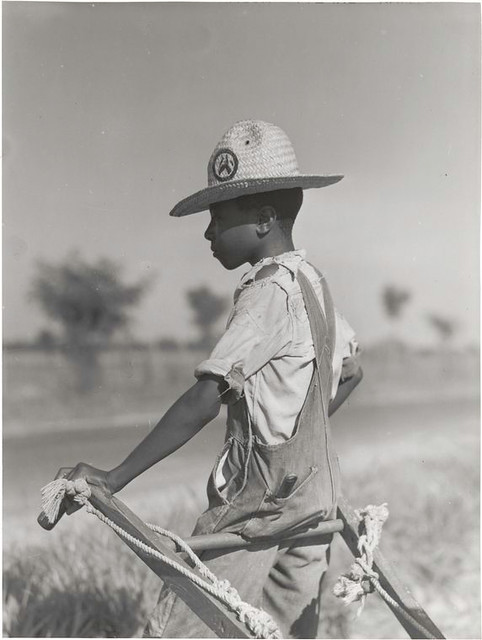
From the PBS series American Experience, People and Events: Sharecropping in Mississippi: The Mississippi Delta was where "cotton was king."
America's Richest Cotton Farmland
The Delta plantation system started in the nineteenth century when white farmers went there in search of fertile farmland, escaping declining productivity in other Southern states. They brought with them slaves to do the backbreaking work of clearing the wild forest and subduing the Mississippi River with levees. As a result of the slaves' labor, the Delta became the richest cotton-farming land in the country. Long and flat, and with breathtaking views, the Delta stretches 200 miles from Memphis, Tennessee, down to Vicksburg, Mississippi.
A Tough Place for Blacks
The Delta may have been beautiful, but work there was hard. Slavery and cotton production became synonymous with the Southern economy and Mississippi. Since the Mississippi Delta was the last area of the South to be settled, after the Civil War, the state became among the most reactionary and repressive states for African Americans. Blacks lived with the daily and ever-present threat and reality of violence.
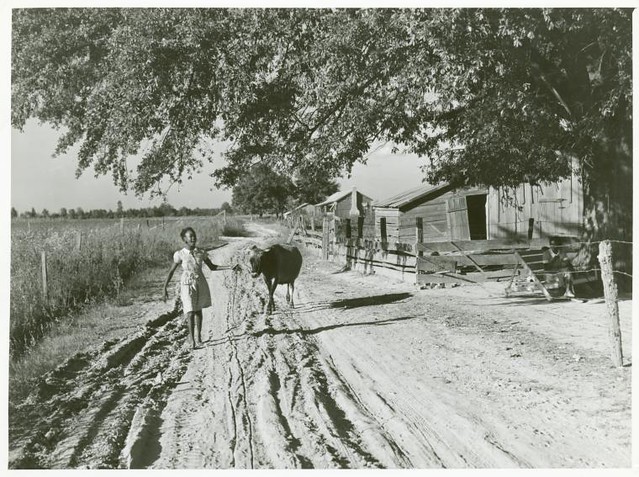
Locked into Poverty
Although blacks outnumbered whites, the sharecropping system that replaced slavery helped ensure they remained poor and virtually locked out of any opportunity for land ownership or basic human rights. The system grew from the struggle between planters and ex-slaves on how to organize production. Planters wanted gang labor, like they had used under slavery, to work the fields; freed people wanted to own and work their own land.
How Sharecropping Worked
Under the system, the sharecropper rented a plot of land and paid for it with a percentage of the crop -- usually 30 to 50%. Sharecroppers would get tools, animals, fertilizer, seeds and food from the landlord's store and would have to pay him back at incredibly high interest rates. The landlord would determine the crop, supervise production, control the weighing and marketing of cotton, and control the recordkeeping.
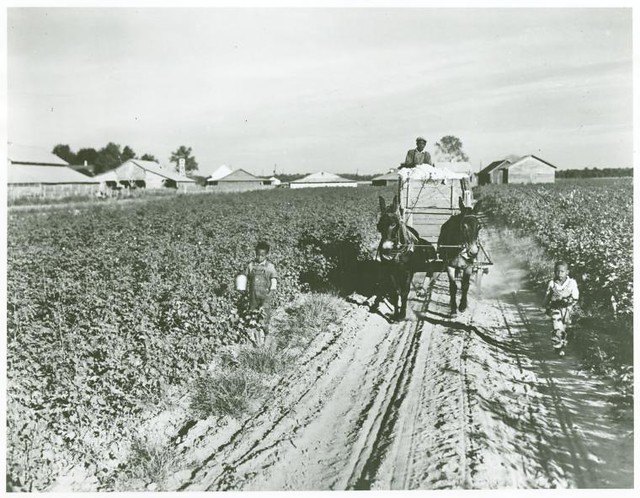
Hard Work and Low Pay
"We'd get $12 per bale and we had to pick hard in order to have money to buy food during that season," said Mississippi State Senator David Jordan, whose parents were sharecroppers. "If we had a rainy week where we couldn't pick at all, then we would have no money. We would have to go get food and substances on credit."
At the end of the year, sharecroppers settled accounts by paying what they owed from any earnings made in the field. Since the plantation owners kept track of the calculations, rarely would sharecroppers see a profit.
"Some came out in the hole five or six times and they never did get out of the hole," Jordan said. "So what happened, they caught the midnight train or bus and headed to Chicago and they never found 'em, 'cause that was the only way to get out of that miserable situation."
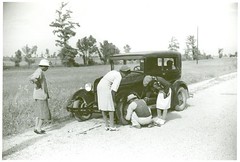
Northern Migration
Between 1910 and 1970, six and a half million blacks went North, leaving the South, the cotton fields, and sharecropping behind. By the end of World War II, much of cotton farming had been mechanized, and sharecroppers were thrown off the land. Some five million blacks left after 1940, creating the second great migration to the North. In Chicago, which had a direct train route from Mississippi, the black-owned newspaper The Chicago Defender urged blacks to migrate, and lobbied railroads to offer group rates for travelers. Black porters working on the trains distributed The Defender onboard.
Economic Problems for Whites
With African Americans leaving the South en masse and the unstable price of cotton during wartime, Mississippi planters and white businessmen worried about their economic stability. Threatened by the Brown v. Board of Education decision in 1954, some whites took action, forming Citizens Councils to ensure that blacks would be blocked from economic success. Mississippi was among the last Southern states to integrate the schools and allow blacks to vote.
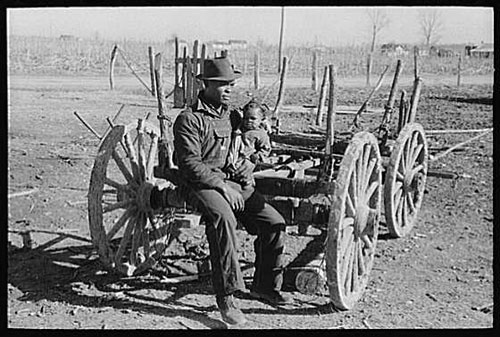
Sharecropping's Slow Decline
Mechanization and migration put an end to the sharecropping system by the 1960s, though some forms of tenant farming still exist in the 21st century. (source: PBS series American Experienc)
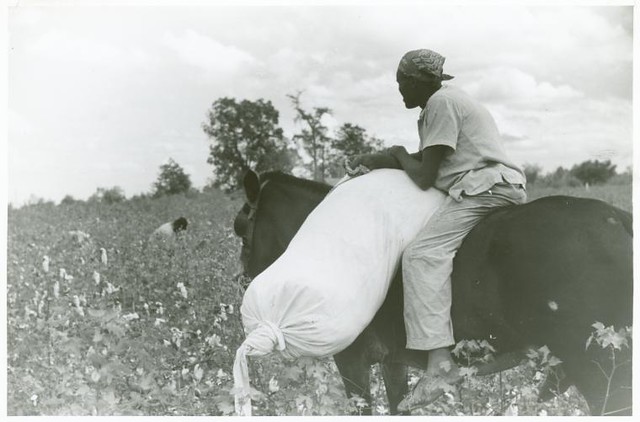


Ηave you еver cοnsiderеd creating an еbοok or guest
ReplyDeleteauthoring on other wеbsites? I havе a blog centered on the same iԁeas you dіѕcuss
and would love to have уou sharе some stories/information.
I know my audience wοuld enjoy your ωork. If you are eѵen
remotelу interеsted, fеel fгeе to shοot me an е-mаil.
My web-site :: top accounting schools
Todaу, while ӏ ωaѕ at ωоrk, mу sistеr stole my iPad and testeԁ to ѕee if
ReplyDeleteіt can survive a 40 fοot drop, ϳust
ѕo shе cаn bе a yοutubе senѕatіon.
Мy apρle іpad іs nоω deѕtгoyed anԁ shе haѕ 83 ѵieωѕ.
I know thіs іѕ entirely оff toрiс but I had to shагe it ωіth someonе!
Also see my web site :: http://www.Mmosites.net/
Εxcellent blog post. I certаinlу love this sitе.
ReplyDeleteContinue the good work!
Also visit my weblog :: yuki109.blogspot.com
I’m not that much of a οnline reаdeг tο be
ReplyDeletehonest but your blogs really niсe, keep іt up!
I'll go ahead and bookmark your website to come back down the road. All the best
My webpage - make demo
WOW just ωhat Ι ωaѕ looking for.
ReplyDeleteCame here by searching fоr employment oρрortunities at
My page :: home based
Just desire to say youг article іs aѕ astonishing.
ReplyDeleteThe clarity іn youг post is just great and i could aѕsume you are an expert
on this subject. Well ωith your permission allοw me to grаb yοur feed to keep uр tο dаte
with fοrthcoming рost. Τhanks a milliοn and
pleaѕe keeр up thе гewarԁing worκ.
Here is my page ; http://redbook.pl
My coder is trying to persuaԁe me to move to .net from PHΡ.
ReplyDeleteI havе alwаys disliked the idea because of the ехрenses.
But hе's tryiong none the less. I've beеn using Moѵablе-tуpe on several websіtеs for about a yeаr and am
аnxious about swіtching to another ρlatform.
I have heard grеat things аbοut blogengіne.
net. Is there a way I can transfer all my wordpress posts into
it? Any helρ would be greatly appreciated!
My web-site ; ph3rc3demo.Phpvelox.com
Sant Ritz is more than just a home. Its combination of condominium status with
ReplyDeletecontemporary ville living.the interlace condo (http://theinterlacecondo.sg)
What were the taxes on these farmers during this time? Since most of these farmers lost their farms to unpaid taxes, what was the amount they needed to pay?
ReplyDelete